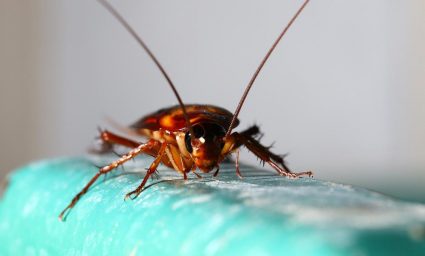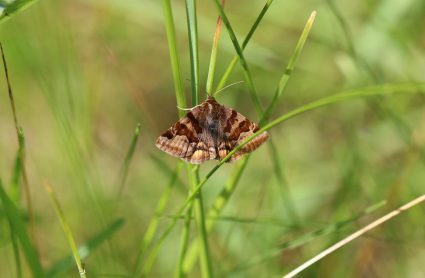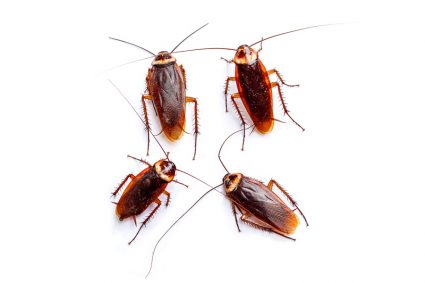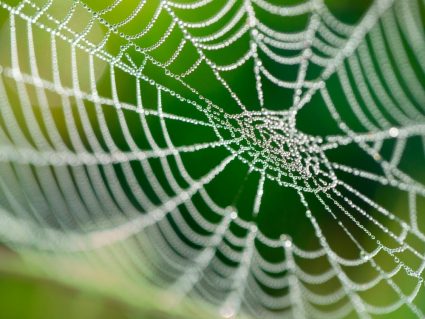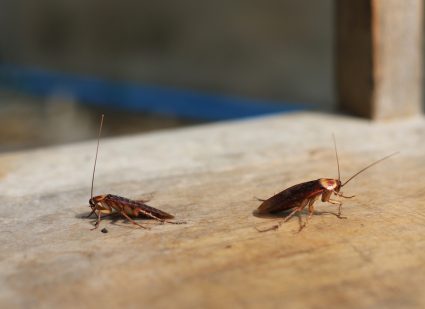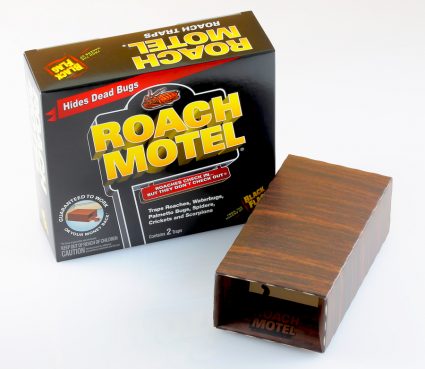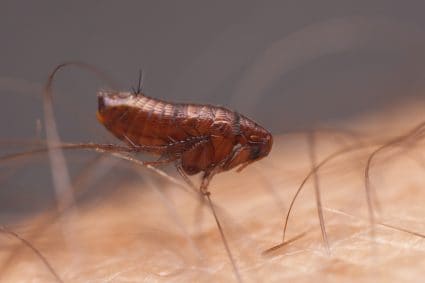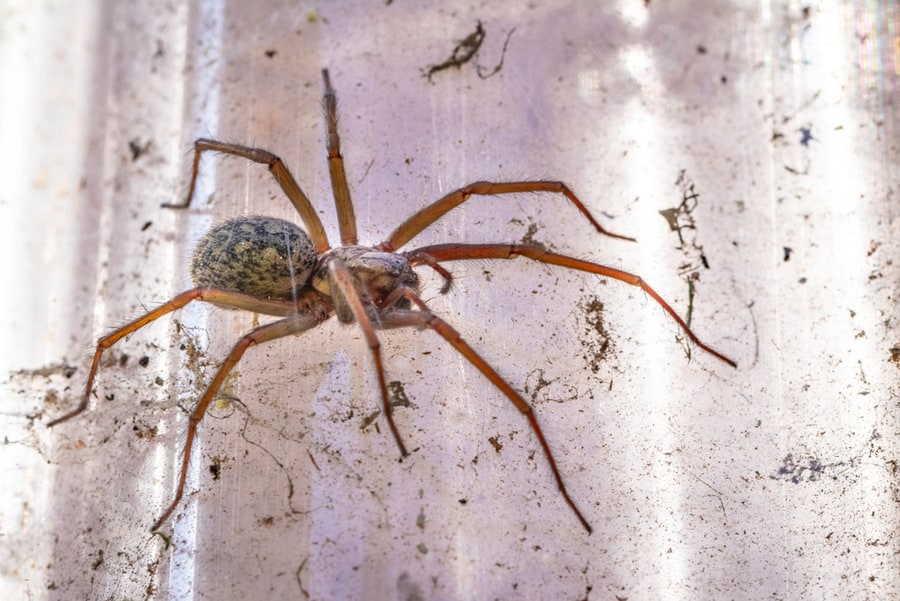
Since spiders are nocturnal creatures, one effective way to repel them is to use bright lights. But it doesn’t just end with using bright lights, as there are specific color lights that repel spiders.
As you would expect, these colors are more effective in keeping the creatures away. So, what color repels spiders?
In this article, we will identify the color light that repels spiders and other alternative ways to keep them at bay. Happy learning!
Regardless of how harmless spiders may be, they can be highly irritating and constitute several nuisances. They spin webs in corridors, ceilings, windows, cabinets, etc., which are unsightly, unhygienic, and discomforting.
One way to keep these air-breathing arthropods away is to use their dislike for specific colors, like blue. Other alternative strategies to deter them include:
- Using natural repellants like vinegar, mint, and cayenne pepper.
- Sealing all possible entry points around the house.
- Hiring a pest control expert.
This is only a summary. Please keep reading to learn why spiders hate the light color blue and how to apply the above-mentioned alternative strategies to deter them.
The rest of the article will identify the color lights spiders hate and the reason for the hostility.
Also, we will identify other alternative spider-deterring strategies and discuss how to deploy them to eliminate these crawling creatures from your home. Let’s get into it!
What Color Light Deters Spiders?
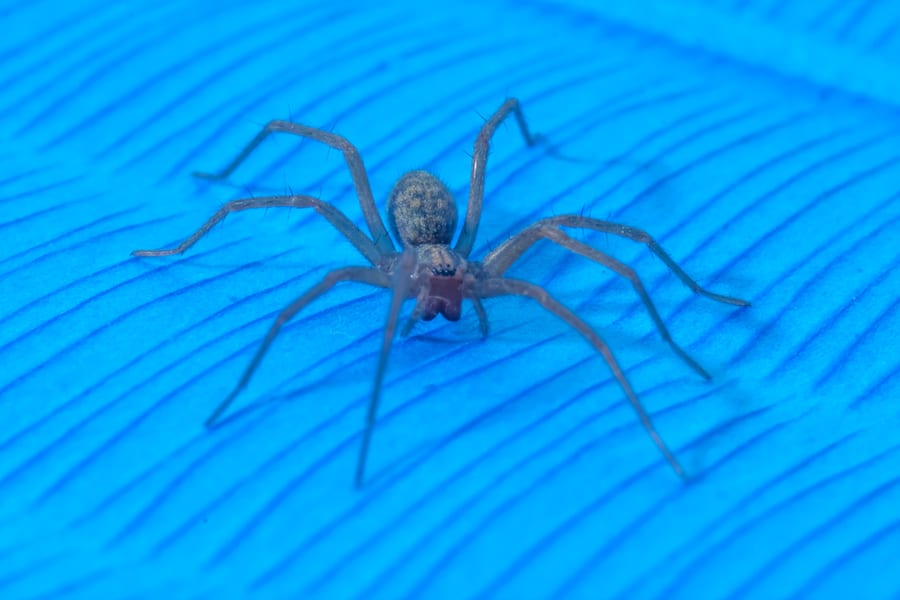
Most spiders have poor eyesight. However, exceptions to this disability are the jumping spider species and the wolf spider species. Which have perfect vision to help hunt insects.
Spiders have primary and secondary eyes. The primary eyes are the two in front, and a pair of the three secondary eyes are at the sides (this can vary in some spider species).
The primary eyes are used for sight, while they use secondary eyes detect motion.
Besides the spider species, which have perfect eyesight, most spiders can only recognize two color lights – blue and green. But, interestingly, they have very particular reactions to these two colors.
Spiders tend to hate the light color blue. As such, this color can serve as a good repellant against spiders.
You can paint entry points, such as doors, windows, etc., with this color. You can also paint the interior walls and cabinets this color to keep spiders away.
There are some speculations and theories as to why spiders dislike this color.
The most common theory is that the color blue gives the spiders a sense of being under the open sky, which further signals that they don’t have any shade or covering and are exposed to predators.
On the other hand, please note that spiders love the color green. So if you don’t want to give spiders the proverbial “green flag” to pitch their tent with you, you should avoid painting entrances to your house or your house generally with the color green.
The speculative reason spiders like the color green are that bugs and other insects are drawn to the color green. As such, green could also signal abundant food to these unwanted guests.
Now, let’s consider other alternative strategies to keep these unwanted creatures.
4 Alternative Strategies To Deter Spiders
Lights, especially blue lights, are highly effective in deterring spiders. However, we recommend adding other strategies to your spider-deterring arsenal for better and faster results.
Below, we will walk you through some of these alternative tricks:
1. Use Scent Repellants
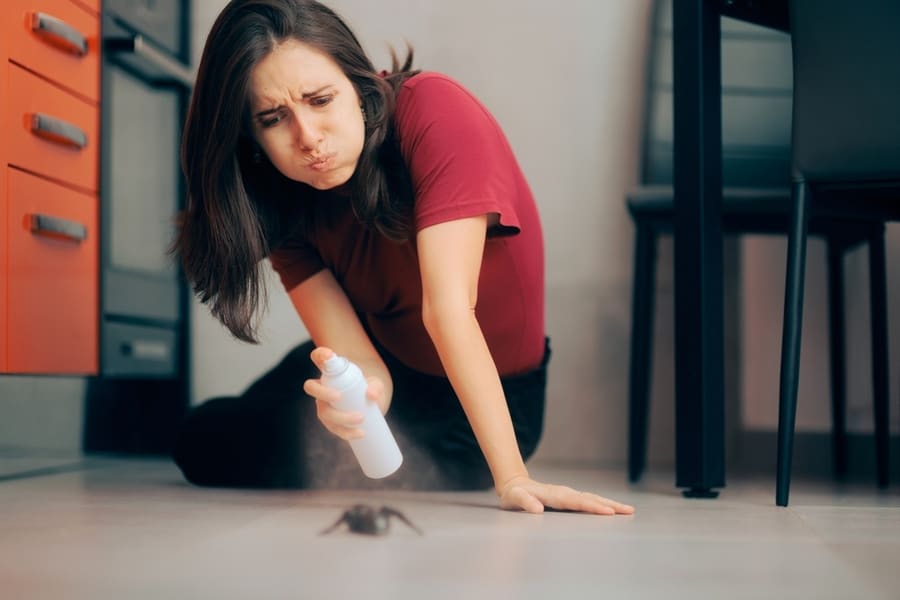
Colors aren’t the only ways to keep spiders away from your home.
These insects have an excellent sense of smell that they use to find their prey. Therefore, scent repellants may be more effective in keeping spiders out of the house.
Some of the scents that repel spiders include vinegar, mint, cayenne pepper, marigold essential oils, and citrus, to mention a few. These scents should be prepared in liquid form and dispensed using a spray bottle.
A downside to scent repellants is that they require constant application and reapplication, as scents tend to disappear. In addition, though organic and easy to make and administer, they can be expensive and tedious.
2. Seal Entrances and Holes

Another great way to prevent spiders from invading the house is to block all potential entrance points. Ensure that all the entrances used by spiders and other similar insects are blocked off.
These entrances may include windows cracks, holes in the walls, doors, roofs, bathroom openings, chimneys, etc. You can seal the gaps with silicon or concrete caulk and reinforce them by applying repellants on the seals.
Close monitoring and prompt repair of the openings around the home through which spiders and other insects can enter the house would greatly help. In addition, it can go a long way in preventing spider and general bug infestations.
3. Control Your Local Environment

The state of the outdoors of your home can influence the chances of being invaded by spiders.
Significant vegetation around your house, bushy lawns, and a dirty environment can lead to severe spider infestations, increasing the chances of spiders making it into your home.
They can also serve as shelter and covers for spiders to build a reasonable population before they enter your home.
Spiders feed on the insects from the environments described above, which are dirty, bushy, or high in vegetation, and will attract or breed many insects.
These insects will, in turn, attract spiders who view the insect population as food. And where there is plenty of food, there is settlement and reproduction. Therefore, keeping a tidy environment with tame vegetation is essential to deter spiders successfully.
Conduct regular sanitary activities to keep the insect population and ensure that the environment does not encourage insect multiplication. You should ideally maintain eight to ten feet away from the house.
4. Hire Insect/Pest Control Companies

Hiring a pest control company is an excellent option for people with either severe cases of spider infestations or an intense fear of spiders.
Insect and pest control companies have the expertise and experience to deal with all kinds of insects, bugs, rodents, etc., including spiders.
Search for any pest control company close to your home and engage their services. With these professionals on board, your home will be free from spiders in no time.
Conclusion
Spiders are one air-breathing arthropod you don’t want around your home. Although they are primarily harmless, there are a few harmful species, like the widow spider.
The venomous bites of these harmful species can have several ill effects on humans and pets like dogs.
With their small bodies, these creatures can constitute other nuisances. Spider webs and cobwebs can make the house untidy, discomforting, and embarrassing.
Spiders hate the color blue. So, you can take advantage of this to deter them from your home naturally. Paint the house and entrances to the home with the color light blue.
For best results, you can deploy other effective spider-deterring strategies. These include sealing possible spider entry points and applying natural spider-deterring repellants like vinegar, mint, and cayenne pepper.
If you are not satisfied with the results, you can hire a professional pest exterminator to handle the job.
Frequently Asked Questions
How Do Spiders Enter the House?
Like most small insects and arthropods, spiders enter homes through openings around the house. Such spaces include windows, doors, cracks in walls, floors, and open chimneys. That is why we recommend you seal all holes in the walls.
Also, do not leave doors open unnecessarily, install nets for all windows, and cover the chimneys always.
Are Spiders Harmful?
Generally, most spiders are harmless. They can even help manage the population of other insects and other spiders by feeding on them.
However, a few species, such as the window spider, are harmful. Their bites are venomous and require proper medical care.
Do Spiders Spread Diseases?
It has been proven that spider bites do not cause any infections. However, venomous spiders can cause injury and intense pain with their bites.
Since you may be unable to identify the venomous species, keeping all spider species away from your home and environment is best.

